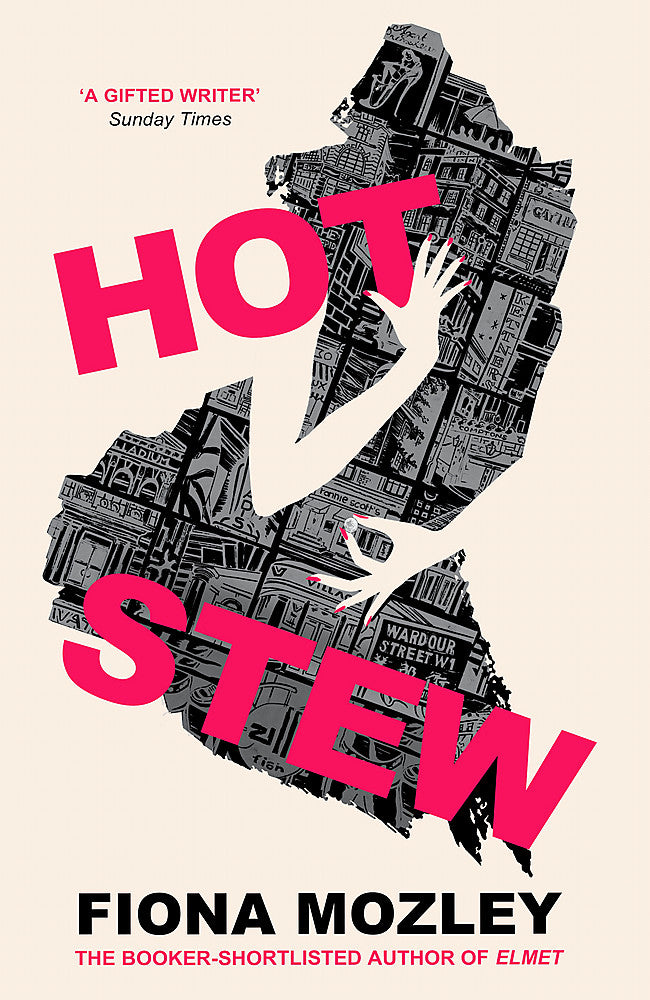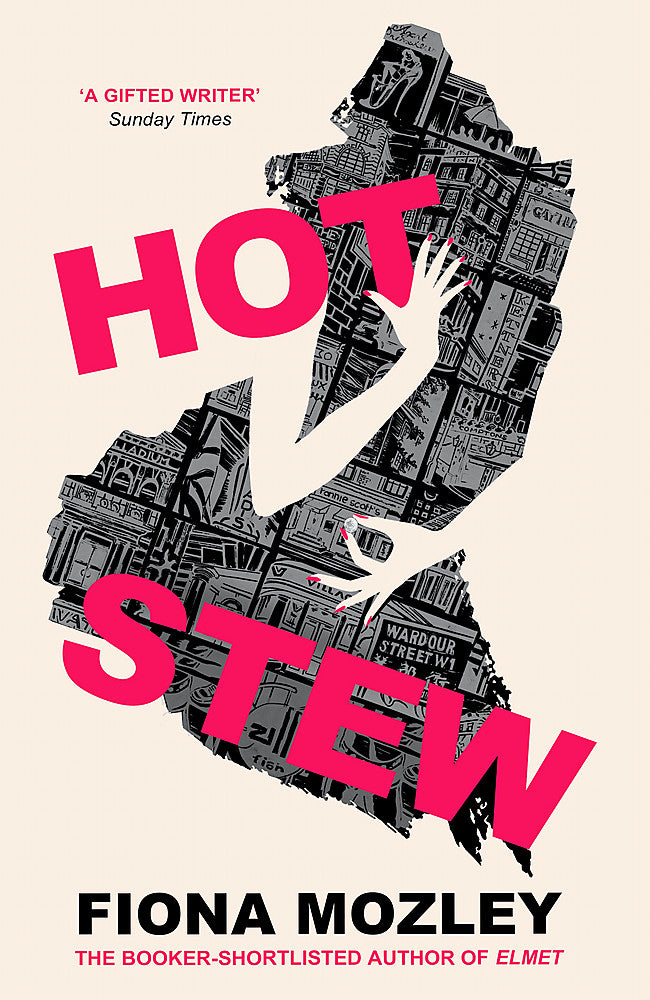Fiona Mozley
Hot Stew
Hot Stew
Couldn't load pickup availability
Reviewed by Kerry
Mozley’s first novel Elmet won numerous awards and was shortlisted for the 2017 Booker. Hot Stew, her follow-up title, moves from the rural north of England to the cramped streets of Soho. While the location has changed her characters are once again living on the fringes of society, albeit in the centre of London.
The opening pages of Hot Stew offer a sense of history and continuity. Soho evolving from the first foundations being laid in the 17th century to the present – always a ferment of gambling and sex, where music has always played, where people have always lived, loved and died. Her streets vibrating with fashion, art and pleasure. Enter the 21st century, the dances are new, the drugs are new but the plots and betrayals remain the same.
In Hot Stew Soho is a larger than life, non-judgemental character that shelters her communities - the sex workers, the addicts, the invisible of our cities, and she is under attack. Greed masked as progress threatens to demolish the last of the old buildings - a brothel without pimps, run by the women for the women. For sex workers Precious and Tabitha, who throughout their lives have taken so much on the chin, this eviction is something that needs to be fought. Hot Stew is the ensuing battle.
Mozley breathes life into her sex workers, her ambitious politicians, ruthless developers, punters and addicts – even the hideous are drawn with empathy, compassion and humour. Yes everyone has an agenda and it is rarely honourable, but for balance we are also privy to their backstories. The sensitivity that marked and elevated Elmet also illuminates Hot Stew. By shining a bright and searching light down the alleyways of Soho Mozley askes her readers to look at our cities, to think about what has gone before and the repercussions on individuals, communities and society by allowing carte blanche development. ‘And luxury flats stood on the crumbling slums like shining teeth on rotten gums.’
As in Elmet, Mozley challenges us to really look.
Share


